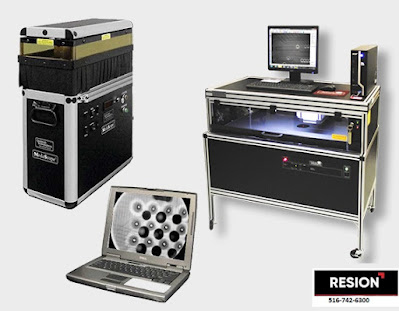February 15, 2019
The electronic component manufacturing industry has faced the challenge of counterfeit electronic components since its inception. It is ha...
Top Methods Of Detecting Counterfeit Electronic Components
Top Methods Of Detecting Counterfeit Electronic Components


Top Methods Of Detecting Counterfeit Electronic Components
8
10
99
The electronic component manufacturing industry has faced the challenge of counterfeit electronic components since its inception. It is hard to ascertain the reliability of any electronic component, therefore, techniques such as electrical visual inspection have been developed.
Counterfeit electronic components, more easily defined as duplicate or fake components have always been a problem in the electronic component manufacturing industry. Manufacturers develop new ways and techniques of counterfeiting parts equipment and mask the authenticity of a genuinely designed component. The main problem that counterfeited equipment pose to the electronic components manufacturing industry is that they hamper the possibility of inventive growth, bringing down the economic value as well as the economic goodwill associated with a particular electronic component. Counterfeit products are a result of refurbishing old, used electronic equipment or name swapping.
Counterfeit electronic components can lead to various mishaps and hazards while being continuously used. They might not show any problem during the initial testing phase, but can lead to equipment failures later on. Not only can they cause system failures, but these can also pose a threat on the lives of the workers testing these components. However, having trained personnel on board can help in detecting and identifying a counterfeit electronic component.
Below mentioned are the top methods of detecting counterfeit electronic components.
Below mentioned are the top methods of detecting counterfeit electronic components.
- Monitoring discrepancies: Manufacturers can note the component specifications such as the length, height, and width and then draw a comparison with other components can help in estimating the authenticity of the equipment. In case you find any mismatch in the specifications of the component, then you might have to further investigate.
- Visual inspection equipment: Visual inspections can be conducted in order to determine if an electronic component part is genuine or fake. Again, one can take specifications and compare to find out about any discrepancies.
- X-Ray inspection: This is another technique to analyze the internal functioning of the electronic equipment. X-Ray can easily point out any problems in the component by marking the use of fake die, wire bonds, and other issues.
- Resurfacing: Nowadays, materials such as plastic and fine quality glass is being used to replace genuine electronic components and produce a more cheaper range. This process is known as blacktopping. During this process, the original markings of the components is sanded off and a coat of polymer is applied to cover them up. However, sometimes, blacktopping results in leaving visible clues about the counterfeit such as indents on chip or unnatural smoothness on the surface of the component.
If you are looking for genuine electronic components, visit Resion. For more information, call at 516-742-6300
Subscribe to:
Post Comments (Atom)
The Benefits of X-Ray Inspection Equipment in Quality Control.
Assuring product quality is of utmost importance to businesses in today's industrial world. One tool that has gained popularity for qu...

Labels
- Ac-Dc converter
- Advanced IC Sockets
- Buy Military Components
- Buy Passive Components
- Capacitors
- Ceramic capacitor
- Component
- component suppliers
- components distributor
- components suppliers
- Components Visual Inspection
- Counterfeit Electronic
- Counterfeit electronic chips
- counterfeit electronic components
- Counterfeit Electronics Personnel Training
- Counterfeit Mitigation
- counterfeiting
- Distributor
- Electrical Visual Inspections
- electronic
- electronic ceramic components
- Electronic Component
- Electronic Component Distributors
- Electronic Component Distributors Military Electronic Parts Electronic
- Electronic Component Distributors Military Electronic Parts Electronic Components Suppliers Buy Passive Components
- Electronic components
- electronic components brokers
- Electronic Components Counterfeit Mitigation
- electronic components distributor
- electronic components distributor in usa
- Electronic Components Suppliers
- electronic products
- Inspection Equipments
- Integrated Supply chain solutions
- Intervox Speakers
- Inventory
- inventory control
- inventory control and management
- Inventory Management
- Inventory Management Challenges
- Inventory Management Solution
- inventory management solutions
- inventory management system
- IP-66
- M3-17
- Manufacture
- military component
- military component suppliers
- Military Electronic Parts
- obsolete component suppliers
- obsolete components distributor
- Obsolete Electronic Components
- Obsolete Electronic Components Distributor
- Proactive Product Supplier Lifecycle Management
- Resonator Parts
- rohs compliance testing
- RoHS Testing
- RoHS Testing Equipment
- Supply Chain Management
- UNIMAX Switches
- Visual Inspection
- Visual Inspection Components
- visual inspection equipment
- Visual Inspection Equipments
- Visual Inspection System
- x ray inspection equipment
- X-Ray inspection
- X-Ray inspection equipment
- X-Ray Inspection Systems
- X-Ray inspection Testing
- X-Ray Testing & Inspection Equipment
- x-ray-imaging

0 comments: